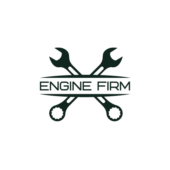CRM for Automotive Industry
Customer Relationship Management, commonly known as CRM, is a strategic approach that focuses on improving relationships with customers to drive business success. In the automotive industry, CRM plays a pivotal role in managing interactions with both current and potential customers, fostering loyalty, and maximizing sales opportunities.
CRM in the automotive industry refers to the utilization of software and technology to effectively manage customer relationships, streamline sales processes, and enhance overall customer experience. It involves gathering, organizing, and analyzing customer data to provide personalized services, targeted marketing campaigns, and efficient communication channels. By implementing CRM systems, automotive companies can track customer interactions, identify preferences, and tailor their offerings to meet individual needs.
The automotive industry requires CRM to adapt to the evolving customer expectations and the competitive market landscape. By harnessing CRM tools, automotive companies can centralize customer information, improve customer satisfaction levels, and boost retention rates. CRM enables companies to anticipate customer needs, respond to inquiries promptly, and capitalize on sales opportunities, ultimately leading to enhanced operational efficiency and sustainable business growth.
Key Features of a CRM System for Automotive Dealers
Automotive dealers rely on CRM for Automotive Industry that offer specific features tailored to their industry’s needs. Here are some key features that enhance operational efficiency and drive business success for automotive dealers:
CRM systems for automotive dealers provide robust inventory management capabilities. These platforms enable dealers to efficiently track and manage their inventory, including vehicle details, availability, pricing, and location. By centralizing inventory data in a CRM system, dealers can quickly access real-time information, optimize stock levels, and ensure timely updates on vehicle availability.
Efficient customer interaction tracking is a vital feature of CRM systems for automotive dealers. These systems capture and store comprehensive customer interaction data, including inquiries, test drives, service appointments, and purchase history. By maintaining a detailed record of customer interactions, dealers can personalize their communication, address customer inquiries promptly, and enhance overall customer satisfaction.
CRM systems offer marketing and sales automation functionalities that streamline workflows and boost productivity for automotive dealers. These features automate repetitive tasks such as sending follow-up emails, scheduling sales appointments, and tracking marketing campaigns. By automating these processes, dealers can save time, improve lead management, and ensure a consistent approach to customer engagement and sales activities.
Benefits of Implementing CRM in the Automotive Sector
Implementing CRM for Automotive Industry in the automotive sector offers a myriad of benefits that can significantly impact business operations and customer interactions.
Enhancing customer relationships is a fundamental advantage of utilizing CRM in the automotive industry. By centralizing customer data and interactions, automotive businesses can personalize their communication, understand customer preferences better, and provide tailored services. This personalization fosters trust and loyalty, leading to long-lasting relationships with customers.
Implementing CRM systems in the automotive sector leads to streamlined sales processes. These systems enable tracking of customer interactions, managing leads effectively, and automating sales tasks. By utilizing CRM tools, automotive dealers can optimize their sales pipeline, identify key sales opportunities, and ensure a consistent approach to converting leads into customers.
CRM systems empower automotive businesses to make data-driven decisions. By analyzing customer data, purchase histories, and preferences, companies can gain valuable insights into consumer behavior and market trends. This data-driven approach helps in forecasting sales, creating targeted marketing campaigns, and adapting strategies to meet evolving customer needs and market demands.
In the fast-paced world of the automotive industry, implementing a robust CRM system is not just an option but a necessity. By leveraging CRM for Automotive Industry tailored to the automotive sector, businesses can revolutionize their customer relationships, drive sales, and stay ahead of the competition. Choosing the right CRM solution, with industry-specific features and seamless integration capabilities, is crucial for sustained success. With options like Salesforce Automotive, HubSpot CRM, Pipedrive, Zoho CRM, and DealerSocket, automotive businesses have a wide array of tools at their disposal. By investing in a CRM system that meets their unique needs, companies can enhance customer satisfaction, optimize operations, and thrive in the dynamic automotive landscape.

